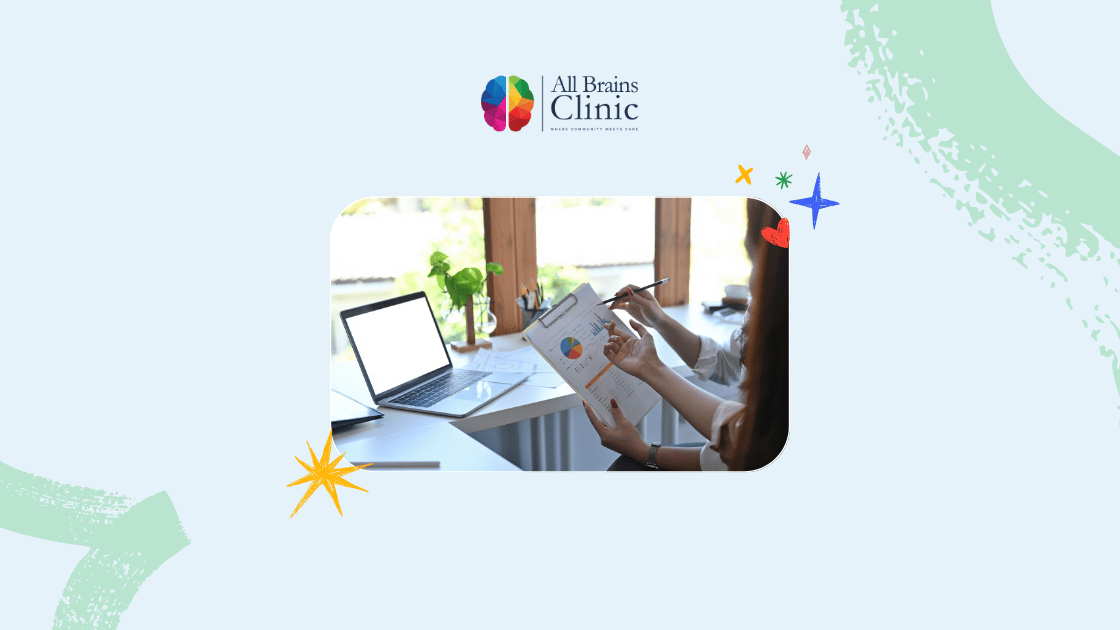Seeing your child facing challenges in school can fill you with lots of worries. You might even ask yourself if they should get tested for ADHD or go through a psychoeducational assessment. Before taking any action, it’s important to thoroughly know about each of these terms. In this guide, we’ll break it down for you in detail.
What Is a Psychoeducational Assessment?
A psychoeducational assessment is designed to understand your child’s strengths and challenges, giving you useful insight into why your child may be experiencing difficulties in learning. It can also help you understand if your child’s symptoms are related to ADHD and provide them with the support they need.
Keep in mind that an assessment is not about finding out if something is “wrong” with your child. The main goal of the test is to help you understand your child better. That way, you’ll be able to provide them with the right resources and accompany them on their life and school journey with ADHD. We understand that the decision to go through the test is stressful, so let’s go through every detail you need to know beforehand.

What Is ADHD?
ADHD, which stands for attention deficit hyperactivity disorder, is a condition that causes the brain to work a bit differently than it does for most people. Kids and teens with ADHD might find it challenging to focus or sit still at times. The good news is that there are helpful ways to manage these symptoms!
Inattentive vs hyperactive ADHD
Symptoms of ADHD usually start before the age of 12. They involve a person’s ability to pay attention to things (being inattentive), having high energy levels (being hyperactive) and their ability to control their impulses (being impulsive).
A child or young person may show signs of being inattentive, such as:
- being easily distracted
- finding it hard to listen to what people are saying or to follow instructions
- forgetting everyday tasks, like brushing their teeth or putting on socks
They may show signs of being hyperactive and impulsive, including:
- having high energy levels
- fidgeting or tapping their hands and feet
- talking noisily
- feeling restless, or getting up and moving around when they’re supposed to sit still
- finding it hard to wait their turn, or interrupting conversations
Most children and young people with ADHD have symptoms of both the inattentive and hyperactive-impulsive type. Some only show signs of one type.

What is ADHD Testing?
In an ADHD evaluation, information is gathered through tests and reports from the child, parents, and teachers, if possible. The testing process usually lasts about 3 hours; it includes an IQ test to evaluate cognitive functioning and other tests to assess executive functioning. Cognitive functions include a broad range of mental abilities such as memory, language, and attention. Executive functioning, on the other hand, manages other cognitive processes and includes skills such as attention, impulse control, and emotional regulation. Lacking these characteristics often is a sign of Attention-Deficit Hyperactivity Disorder or ADHD.
.png)
What’s Included in an ADHD Assessment?
These are usually the items tested and included in ADHD testing:
- Detailed intake process to review the child’s symptom history
- Conversations with parents, caregivers, teachers, and service providers to see how ADHD symptoms show in various settings
- Comprehensive neurocognitive evaluation to identify the child’s strengths and weaknesses
- Assessment of memory capabilities and IQ tests
- Complete academic achievement assessment to rule out learning disabilities
- Standardised evaluations focusing on attention skills
- Targeted testing to examine executive functioning skills
.png)
The Benefits of Diagnosing ADHD through Psychoeducational Testing
Better understanding of ADHD: Many people with ADHD might not fully know about it, even when they become adults. This is where assessments and treatments shine, helping you shape a better understanding of the symptoms and their impact on daily life and relationships with others.
Better coping strategies: When Children go through assessment and treatment, they can discover helpful ways to manage their symptoms, like staying organised, managing their time better, and using techniques to reduce stress.
Better self-esteem: Children with ADHD might find it tough to feel good about themselves because they sometimes struggle to finish tasks or stay focused. However, getting to know their condition better can really help them embrace who they are, leading to a boost in their self-esteem!
Better school performance: Children with ADHD might find it tough to perform at their best in school due to challenges with attention and staying organised. Once they learn more about their condition, they can team up with others to create helpful strategies that make it easier to improve their performance and achieve their goals. Our student support team is a trusted resource that you can access to help your child perform better at school!
.png)
Understanding ADHD Is the First Step Toward Support
Remember that if your child is struggling with focus, restlessness, or impulsivity, you don’t have to figure it all out by yourself. Getting an ADHD diagnosis through psychoeducational testing can be a valuable step. Not only does it clarify what your child is experiencing, but it also opens the door to personalised strategies, improved self-esteem, and better day-to-day functioning at home and at school.
Every child has a unique learning profile, and understanding ADHD is just one part of seeing the bigger picture. With the right tools and support, your child can feel more confident, stay on track academically, and discover new ways to thrive. Whether you’re just beginning to explore the idea of testing or already preparing for the next steps, remember that the goal of this journey is to discover how your child learns best, not labelling or limiting them.

Dr. Ali Eslami, Chief Editor
Dr. Ali Eslami is a child psychiatrist at BC Children’s Hospital and All Brains Clinic with a PhD from Brown University. With expertise in neurodevelopmental disorders, autism assessment, and AI research in mental health, he ensures every article meets the highest standards. His sharp editorial eye guarantees clarity, accuracy, and credibility in all our content.

.svg)


.svg)
.png)



.png)


.svg)








.svg)




